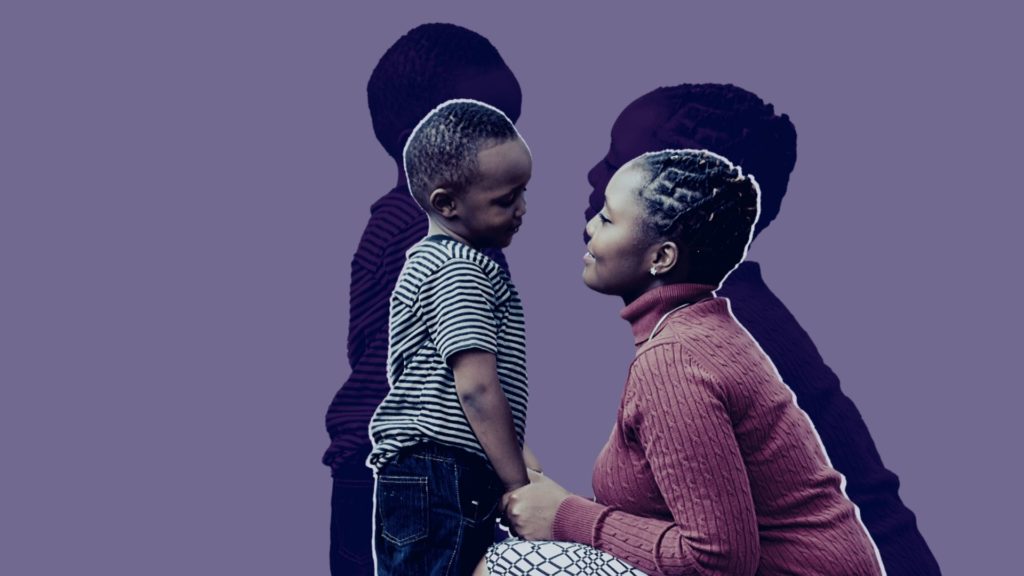
Parenting is a hard job, even when two people share this responsibility. Imagine when all that responsibility rests on one person alone. And in a country like Nigeria, being a single mother or being raised by one comes with a lot of underhanded compliments and side comments. But what exactly does being raised by a single mother look and feel like to the men who’ve experienced it? These four Nigerian men share the most important lessons their mothers taught them.
“My mother taught me resilience”
— Tomisin, 34
My mum and dad had been married for less than six years when he died. I was four years-old at the time, and growing up, my mum was my mum, dad, teacher and everything in one woman. Even though we struggled financially, my mum always made it work. She always said, “You can’t control what happens in your life, but you can always control what you will feel and do about what happens to you.” But the truth is, even though she said this, as I grew older, I began to notice that she felt a lot of guilt about not being able to provide all the things I wanted. She’d never admit it though. Deep down I know she did her best and prioritised the things I needed. As a parent now, I know that goes a long way.
She inspires me to be resilient and always try to make things work, if not for me, then for my kids. Do I miss my dad? Yes, but it’s just the idea of him that I miss because I never got to know him. That being said, my mum is such a large presence in my life, there has never been doubt about me being loved or special.
“My mother taught me to love hard, but give people space to grow on their own”
— Chisom, 30
My parents separated when I was ten years-old. As I got older, I realised that he’d left my mum for a younger woman. How cliché is that? As a child about to become a teenager, I didn’t take it well. I blamed my mum a lot and became distant. Also, as the only child, I didn’t want to be seen as a “woman wrapper” or a “mummy’s boy” at the time, which sounds stupid now that I think of it. I was a problematic child because I wanted to differentiate myself from her and have my own masculine identity. After all, the truth is, as Nigerians, men are largely defined by how much they aren’t like women.
Even though I continued to push her away, she never made it a big deal. All she did was love me and be there for me. She didn’t even force it. Over time it dawned on me that this man I desperately wanted back had moved on. The society I was trying to please — well, they weren’t that important in the grand scheme of things. This woman loved me despite my stubbornness and she gave me time to grow and find my way back to her.
“My mother taught me the importance of delegating to ensure peace of mind”
—Tijani, 28
My dad killed himself when I was about three or four years-old. Till this day, no one knows why he did it. My mum was 28 at the time and had to care for three young boys. You can imagine how hard it was for her, but she never showed it. That can be a good and bad thing because a part of me growing up felt like she didn’t feel anything and it’s probably because she was putting up a front for us.
One thing I appreciated, though, is the fact that she delegated tasks in raising us. We had uncles around who we could talk to about boy problems, while she just focused on being our mum. I love that she didn’t sacrifice our mother-son relationship by trying to be a father figure too. Note that, while It’s helpful to have someone of your gender to look up to, I don’t think it’s a do-or-die thing. We were just lucky.
“My mum taught me to hustle hard. You can’t sit around waiting for help”
— Paul, 31
My dad died when I was 14, and just like that my ajebutter life became history. He had spoilt my siblings, my mum, and me so much that losing him flung us into a terrible state of “what do we do now?”. But my mum is a G mehn. The way she picked herself up and hustled to make sure we were okay? I don’t think I could’ve done half of what she did for us. This woman was working long hours and also running a business on the side just so she could afford to pay our school fees. We never went back to the way we used to be financially, but she made sure we weren’t suffering or seriously lacking.
She made sure we always had jobs, not for the money, but just so we understood the importance of responsibility. At 31, I have so much experience across the formal and informal sectors and it’s all because she pushed us to be the very best. No matter what life throws at you, alaye, you just have to jazz up and make it work.




